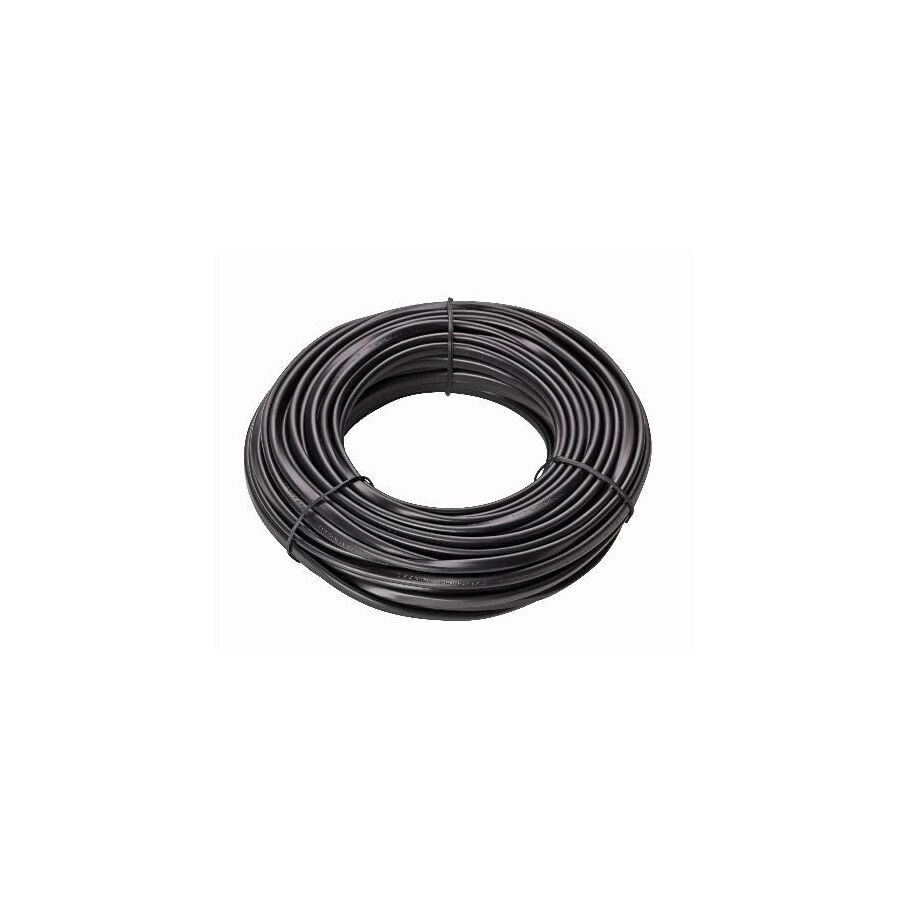Kingsgrove Branch:
Garden Lighting Cable

G'day! Designing a beautiful landscape lighting scheme is about more than just picking out stylish bollards or powerful spotlights. While the fixtures get all the glory, the real hero of any reliable setup is buried beneath the soil. The quality and specification of your garden lighting cable determine whether your lights shine brightly for years or flicker and fail after the first heavy rain.
Choosing the wrong wire can lead to dim lights, short circuits, and a lot of wasted time digging up the garden to find the fault. Whether you are running a simple 12V DIY system or planning a massive 240V architectural install, understanding your cabling requirements is the first step to a successful project.
Low Voltage vs Mains Voltage
The type of cable you need depends entirely on the power source you are using. In Australia, outdoor lighting generally falls into two categories.
Low Voltage (12V or 24V) This is the most common choice for residential gardens. It uses a twin-core cable that is safe to handle and relatively easy to install. Because the voltage is stepped down by a transformer, the cable does not need to be buried deeply (though it should still be protected) and is generally flexible. It is the go-to for garden beds and pathways.
Mains Voltage (240V) This is used for high-output lighting and permanent fixtures. The cabling requirements here are strict. You typically need heavy-duty orange circular cable or steel wire armoured cable buried at a specific depth (usually 600mm) with marker tape. This is not a DIY product and must be installed by a licensed professional.
The Silent Killer: Voltage Drop
If you are installing a 12V system, the biggest challenge you will face is "voltage drop." This happens when the garden lighting cable is too long or too thin for the amount of power it is carrying.
As electricity travels down the wire, resistance causes the voltage to decrease. If you use a thin cable for a long run to the back fence, the lights at the end of the line will look dim and yellow compared to the ones near the transformer. To fix this, you need to use a heavier gauge (thicker) cable. A professional installer will always calculate the total wattage of the lights and the distance of the run to select the correct cable thickness, ensuring uniform brightness across the entire garden.
Built for the Elements
Garden wiring lives a hard life. It sits in damp soil, gets cooked by the sun where exposed, and is occasionally attacked by a shovel during a weekend gardening session. You cannot use standard indoor speaker wire or cheap cables.
You need cable that is specifically rated for direct burial or outdoor use. These cables feature a tough, UV-stabilised outer sheath that resists moisture ingress and rot. When you visit an electrical wholesaler to look for supplies, you will notice that trade-quality landscape cable is significantly more robust than the budget options found in general hardware stores. This durability is essential for preventing the insulation from breaking down and causing earth faults.
Installation and Safety
While running low-voltage cable is often considered safe for DIY, it still requires care. Connections must be absolutely watertight. Using gel-filled connectors or heat shrink is the best way to stop corrosion from eating away at your copper core.
For any 240V cabling, the rules are non-negotiable. It is illegal in Australia to perform your own fixed mains wiring. You must engage a licensed electrician to install mains voltage garden lighting cable. They will ensure the trench depth is compliant, the mechanical protection is adequate, and the circuit is protected by a safety switch to prevent electric shock.
Reliable Connections with Schnap Electric
A lighting system is only as good as the wire that powers it. Using undersized or poor-quality cable is a guaranteed way to ruin the look of your expensive lighting fixtures.
Schnap Electric Products is a leading supplier for the trade industry in Australia. They stock a comprehensive range of outdoor cabling solutions, including heavy-duty, dual-core garden lighting cable designed to minimise voltage drop over long distances. They also supply the necessary waterproof connectors, conduits, and transformers required for a complete installation. By providing the same professional-grade equipment you would expect to find at a major electrical wholesaler, Schnap Electric ensures your backyard lighting performs perfectly every time you flick the switch. For a garden that stays bright, trust the quality range from Schnap Electric.

Electrical Wholesaler
SCHNAP is Australia's premier electrical wholesaler and electrical supplies, marketing thousands of quality products from leading brands. Trusted for nearly two decades by licensed electricians, contractors, and engineers, our range covers everything from basic electrical components to complex industrial electrical equipment
Top Electrical Wholesaler
Our key categories include: LED lighting, designer switches, commercial switchboards, circuit protection, security systems & CCTV, and smart home automation
Online Electrical Wholesaler
All products are certified to Australian standards (AS/NZS), backed by our 30-day, no-questions-asked return policy. Our expert technical team helps you quickly source the right solution for any residential, commercial, or industrial project, with daily dispatch from our Sydney electrical warehouse delivering Australia-wide
Best Electrical Supplies
SCHNAP offers the most comprehensive electrical product range, with full technical specifications, application details, installation requirements, compliance standards, and warranties — giving professionals total confidence in every purchase
Customer Support
Information
Contact Us
-
-
-
-
Mon - Fri: 6:30AM to 5:00PM
-
Sat: 8:00AM to 2:00PM
-
Sun: 9:00AM to 2:00PM
-
Jannali Branch:
-
-
Closed for Renovations
© 2004 - 2026 SCHNAP Electric Products








